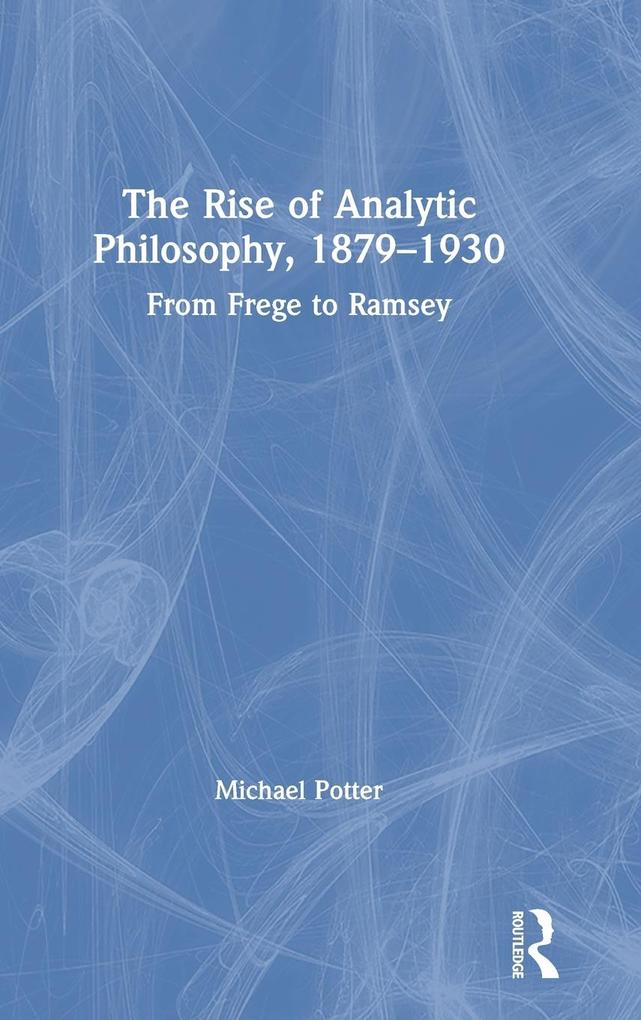
Zustellung: Di, 01.07. - Fr, 04.07.
Versand in 1-2 Wochen
VersandkostenfreiBestellen & in Filiale abholen:
A fresh and compelling portrait of the birth of modern analytic philosophy, viewed through the lens of a detailed study of the work of the four philosophers who contributed most to shaping it: Gottlob Frege, Bertrand Russell, Ludwig Wittgenstein, and Frank Ramsey.
Inhaltsverzeichnis
Introduction
Part I Frege
Part I Frege
- Biography
- Logic before 1879
- Begriffsschrift I: Foundations of logic
- Begriffsschrift II: Propositional logic
- Begriffsschrift III: Quantification
- Begriffsschrift IV: Identity
- Begriffsschrift V: The ancestral
- Early philosophy of logic
- The Hierarchy
- Grundlagen I: The context principle
- Grundlagen II: Arithmetical truth
- Grundlagen III: Numbers
- Grundlagen IV: The formal project
- Sense and reference I: Singular terms
- Sense and reference II: Sentences
- Sense anad references III: Concept-words
- Grundgesetze I: Types
- Grundgesetze II: Extensions
- The Frege-Hilbert correspondence
- Later writings
- Frege's Legacy
- Biography
- Bradley
- Geometry
- McTaggart
- German Mathematics
- Whitehead
- Moore
- Leibniz
- Peano
- Early logicism
- Denoting concepts
- The contradiction
- On denoting
- Truth
- Types
- Middle logicism
- Acquaintance
- Matter
- Pre-war judgement
- Facts
- Late logicism
- Post-war judgement
- Neutral monism
- Russell's legacy III Wittgenstein
- Biography
- Facts
- Pictures
- Propositions
- Sense
- Wittgenstein's concept-script
- Objects
- Identity
- Solipsism
- Ordinary language
- Minds
- Logic
- The metaphysical subject
- Arithmetic
- Science
- Ethics
- The mystical
- The legacy of the Tractatus IV Ramsey
- Biography
- Truth
- Knowledge
- The foundations of mathematics I: Types
- The foundations of mathematics II: Logicism
- Universals
- Degrees of belief
- Facts and propositions
- Last papers
- Ramsey's legacy
Produktdetails
Erscheinungsdatum
21. Oktober 2019
Sprache
englisch
Seitenanzahl
524
Autor/Autorin
Michael Potter
Verlag/Hersteller
Produktart
gebunden
Gewicht
901 g
Größe (L/B/H)
235/157/33 mm
ISBN
9781138015135
Entdecken Sie mehr
Bewertungen
0 Bewertungen
Es wurden noch keine Bewertungen abgegeben. Schreiben Sie die erste Bewertung zu "The Rise of Analytic Philosophy, 1879-1930" und helfen Sie damit anderen bei der Kaufentscheidung.










